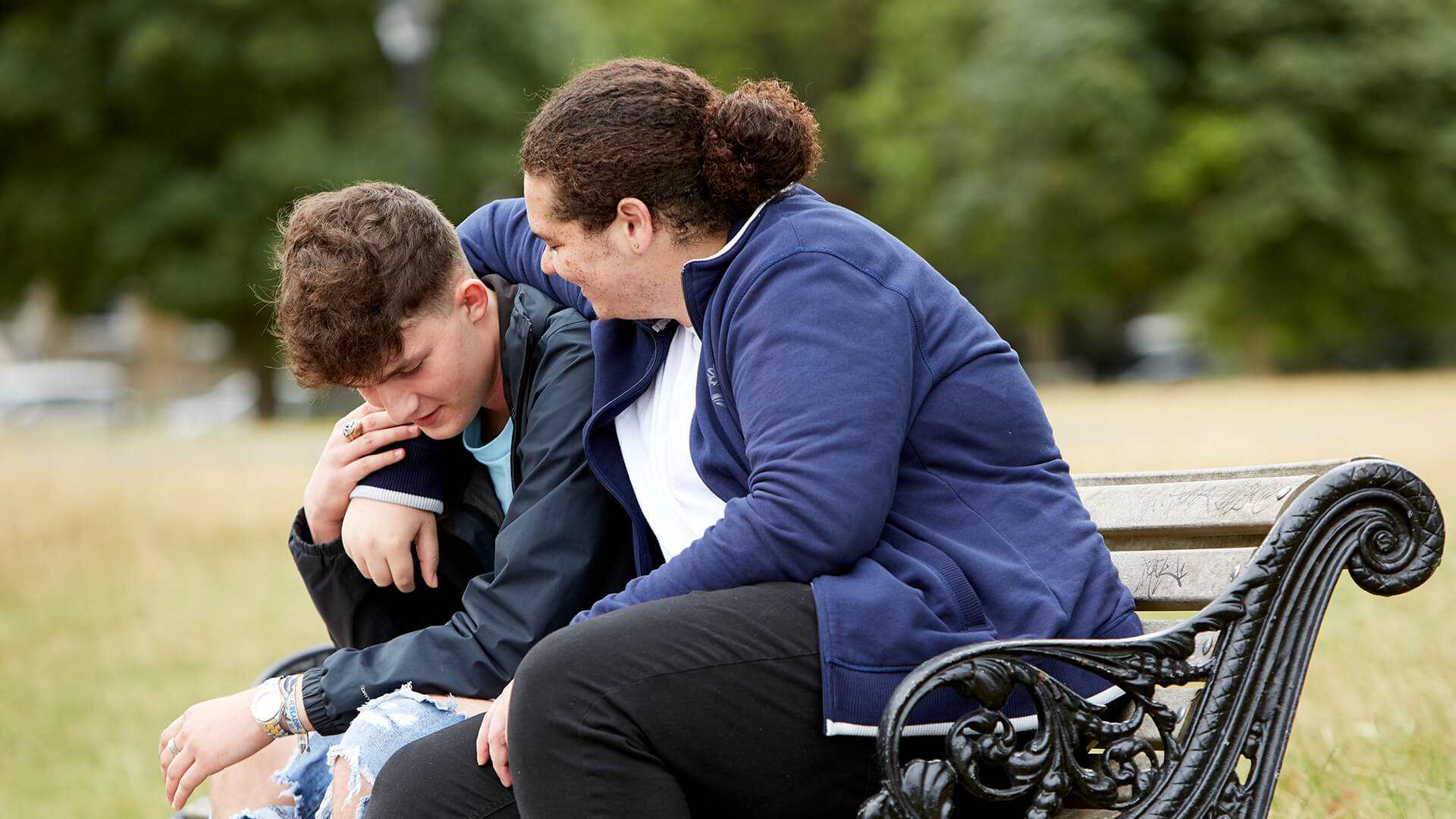
We know it can be difficult to know how to respond when someone opens up to you about their mental health. Here’s our advice on what you can say and how you can support your friend, while looking after your own mental health too.
When a friend opens up to you about how they are feeling, or tells you about something they are struggling with, you might find the conversation tough and it can feel difficult to know what to say. This reaction is normal. It shows you care for that person and want to help them - it’s part of our nature to want to support others and this is something you should be proud of.
However sometimes, when we are supporting our friends we can take on a lot of stress. You might feel like it’s your responsibility alone to help them. But there are ways you can help your friend, and find people who can support you too so that you don’t feel overwhelmed and under pressure.
It's not all on you
It can be difficult to hear when a friend tells you they're going through a tough time. You might feel like it's your responsibility alone to help them. But there are ways you can help your friend and find people who can support you too, so that you don't feel overwhelmed and under pressure. Remember it's not all on you.
It's ok to encourage your friend to speak to other friends, a teacher, school counsellors or the incredible helplines and online services listed below. You could also show them this website or our Instagram.
How to respond when a friend opens up to you
If a friend has shared how they are feeling, it might be the first time they have spoken to someone about their mental health and they may struggle to put their thoughts into words. They might not go into lots of detail and say something like ‘I’m finding things hard right now’ or ‘actually, I’m not fine’. Or they might share things they are struggling with at home, school, university or work.
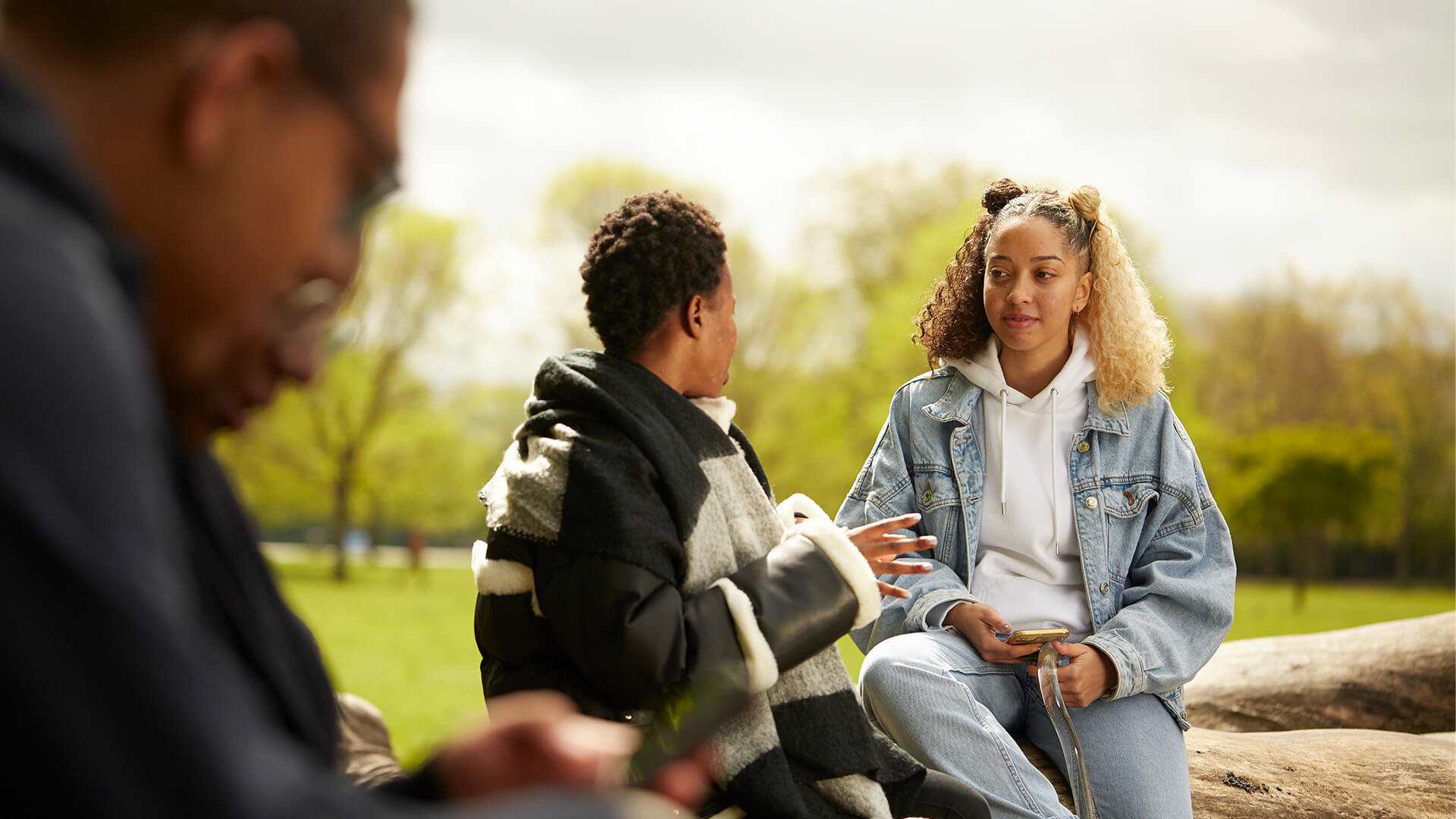
Listen carefully when someone opens up to you about how they are feeling. Try to let them share without interrupting or judging them, or making any assumptions. This can help make your friend feel more comfortable. You can show you are listening by nodding, or repeating what they say to show you have understood.
If they are finding it overwhelming, you can suggest they write it down in a text or on a piece of paper. That way, they can take their time in thinking about what they are trying to say, without worrying about how it might come across in conversation, or worrying about getting emotional in front of you.
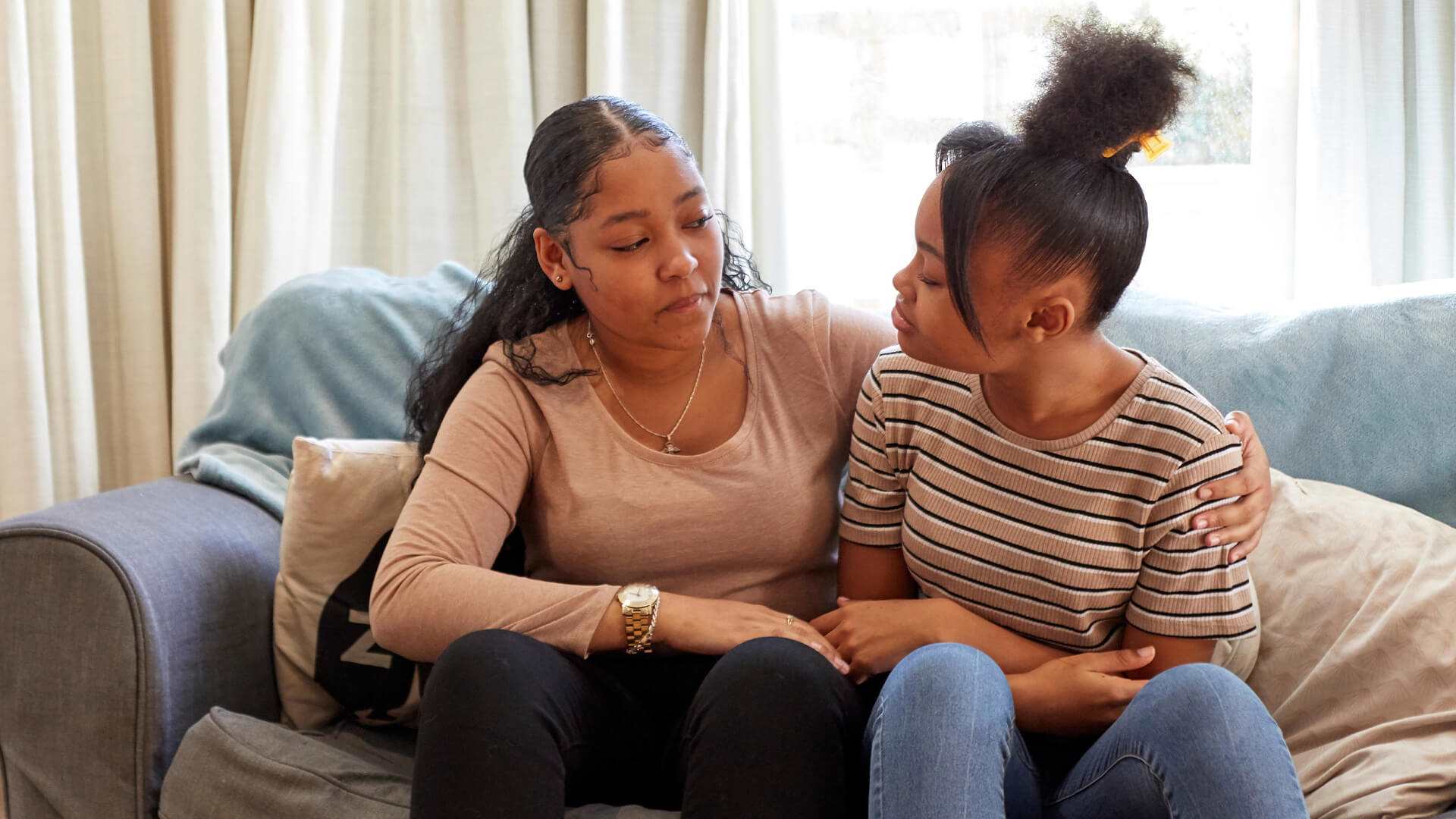
Reassure them
Often, when someone has opened up about how they are feeling, they might immediately feel worried that they’ve said the wrong thing or shared too much. The first way you could respond to them is to reassure them that they have done the right thing by speaking about it. You could say, ‘I’m really glad you told me this’, or ‘it might have felt difficult but it’s good that you spoke to me about it.
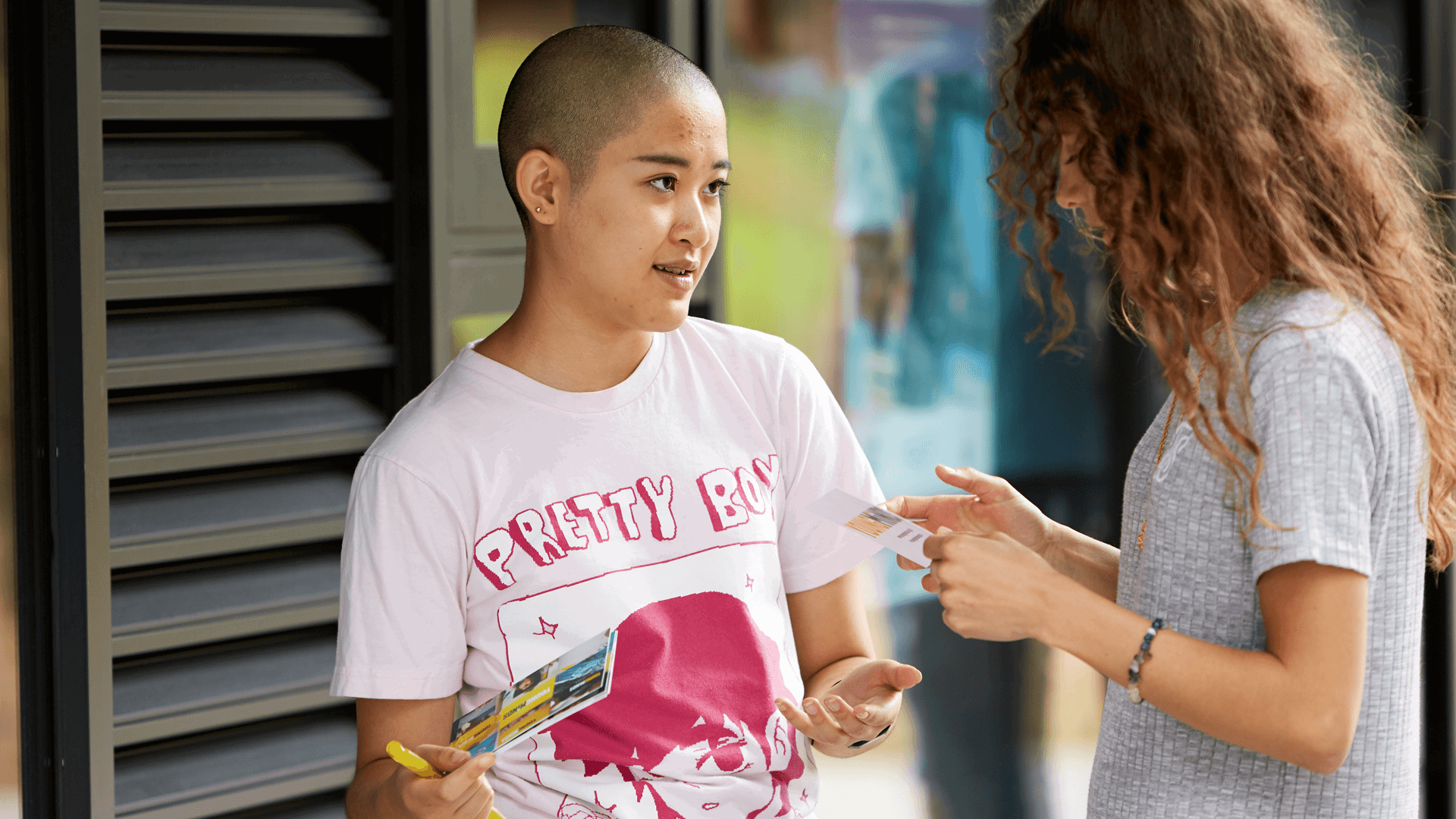
No matter what they are struggling with, their experiences are valid and it can be helpful to remind your friend of this. You could say something like ‘its okay to feel like that’ or, ‘what you’re going through sounds really tough’. Sometimes when you are struggling with your mental health, it can feel very lonely. By letting them know how they feel is valid, you are letting them know that they are not alone.

Sometimes all it can take to let your friend know that you are there for them is a hug, a cup of tea or just taking the time to sit with them. It doesn’t have to be a big gesture, you being there lets them know that you care.
After someone has shared with you how they are feeling, they might be worried that you won’t want to spend time with them. Simple gestures can remind them that you are still their friend, and you can still do the things you used to do together.

It’s understandable if after your friend has shared something with you, that you want to fix it or do what you can to help. But remember, it’s not all on you, and it is not your responsibility alone to help them. You have done so much by being someone your friend can open up to, and there are lots of other people and places you can go for further help.
What you can do to support a friend
When you are supporting someone, we know that sometimes it isn’t easy and you might feel out of your depth. Being honest and having a conversation with them about how they are feeling and what help they need can make a big difference. Remember, just by being there for your friend, you are doing something amazing.

You can ask your friend what help they would like from you. This lets your friend know that you are there for them and helps you to understand how you can best support them. You could offer to help them find helplines or websites for support, or see if they would like you to help them get an appointment with their GP.
If they want you to do anything you don’t feel comfortable doing, then you have every right to say what level of support you feel comfortable giving.

You don’t need to have all the answers or be an expert in mental health. It’s okay if you don’t understand their situation or are unsure about what to say. By listening to how they are feeling, you are giving your friend the space to share and a chance to be heard. This is a great reminder that they do not have to struggle in silence, and that there are people who can listen and help.

If you have found a helpline or website helpful to you before, share this with your friend. Or, you could have a look online to see what you can find for your friend; we have a lot of advice and support on a variety of topics. Having a recommendation from you can help them to trust the advice. When you are sharing with a friend a website or helpline, explain how you think it might help them.
It can be scary to reach out for support, especially to someone you have not met before, so talking to your friend about how the helpline works can be really reassuring.
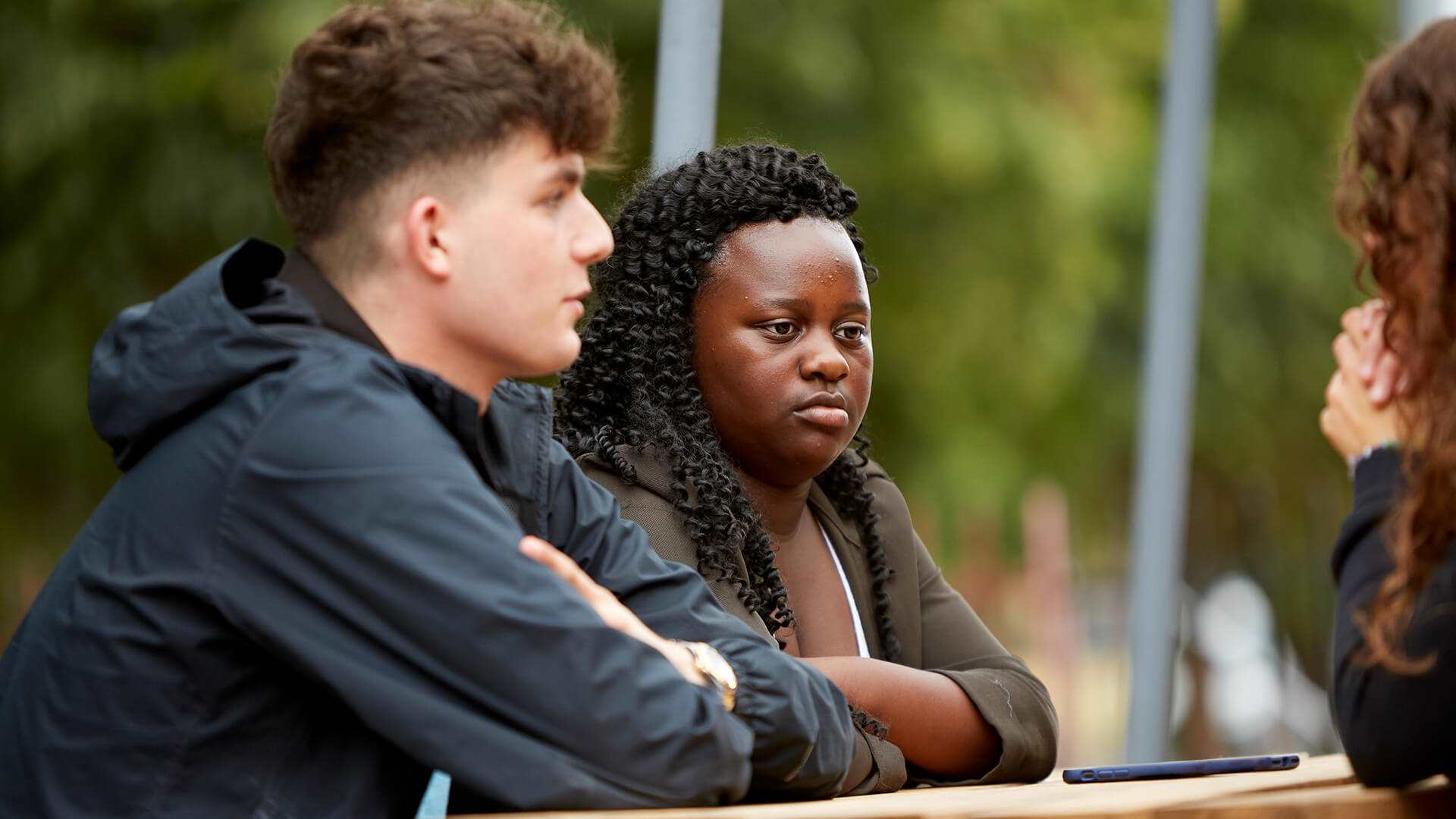
If you are worried about your friend, encourage them to talk to an adult they trust like a teacher, school nurse, or youth worker. Your friend might be nervous to tell an adult and worried about what their reaction might be. If you’re able to, you could offer to go with them to talk to a trusted adult.
Should I keep things secret?
Your friend might tell you things that are very personal, and very worrying. For example, they might tell you that someone is hurting them, abusing them, or that they are worried about their personal safety. They might tell you that they are harming themselves or thinking about ending their own life. They might try to make you promise not to tell anyone what they have told you. But remember, their safety is the most important thing.
If you are worried that your friend is in danger you should speak to a trusted adult like a teacher, family member or doctor. People need to know in order to give your friend the help and support they need. You can let your friend know that you need to talk to an adult and let them know why. Your friend might find this difficult and ask you not to, but they will eventually understand that you want to help them get through this.
Check in with your friend
After you’ve had a conversation with your friend, check in and see how they are doing a day or two later. You could say, ‘how are you feeling since our chat the other day?’ This can remind them that they are not alone and you are there to support them. Your friend might not want to talk about it and that’s okay, it’s important to respect their boundaries and give them the time they need time to look after their mental health.

Will's story: How friends helped me when I was struggling
The episode began when I had completed my A-levels and my relationship of over two years broke down. I felt lost, abandoned, and was experiencing acute low mood and anxiety. My closest friend lived in the same town and he was a huge help in finding my way through this episode. He helped me by taking me exploring and finding exciting activities for us to do.
We never really spoke of my troubles explicitly; he just knew that I was struggling and was always on hand to suggest fun activities and encourage me to do them with him. If it were not for my friend dragging me out and taking me places or keeping my mind occupied, I would have found this episode even more difficult and I certainly would not have had so many fond memories of exploring and enjoying myself, something which is particularly difficult when you feel low.
At the same time, another friend offered me more explicit psychological help by being there to talk to and share my feelings with. The best thing they did for me was to listen without judgement and show that they cared. She showed empathy, understanding, and (most importantly) provided a safe space for me to talk about my feelings.
Tips from our Activists
Our Activists share their tips on how you can support your friends:
Our Not All On You animation series
With thanks to Effervescent, the Arts Council England and the YoungMinds Activists for creating the Not All On You campaign.
Looking after yourself
When you have supported a friend or listened to a difficult conversation, you might be feeling drained, anxious or stressed about what they have shared with you. Your feelings are valid too and it’s important that you take time out to look after your own mental health.
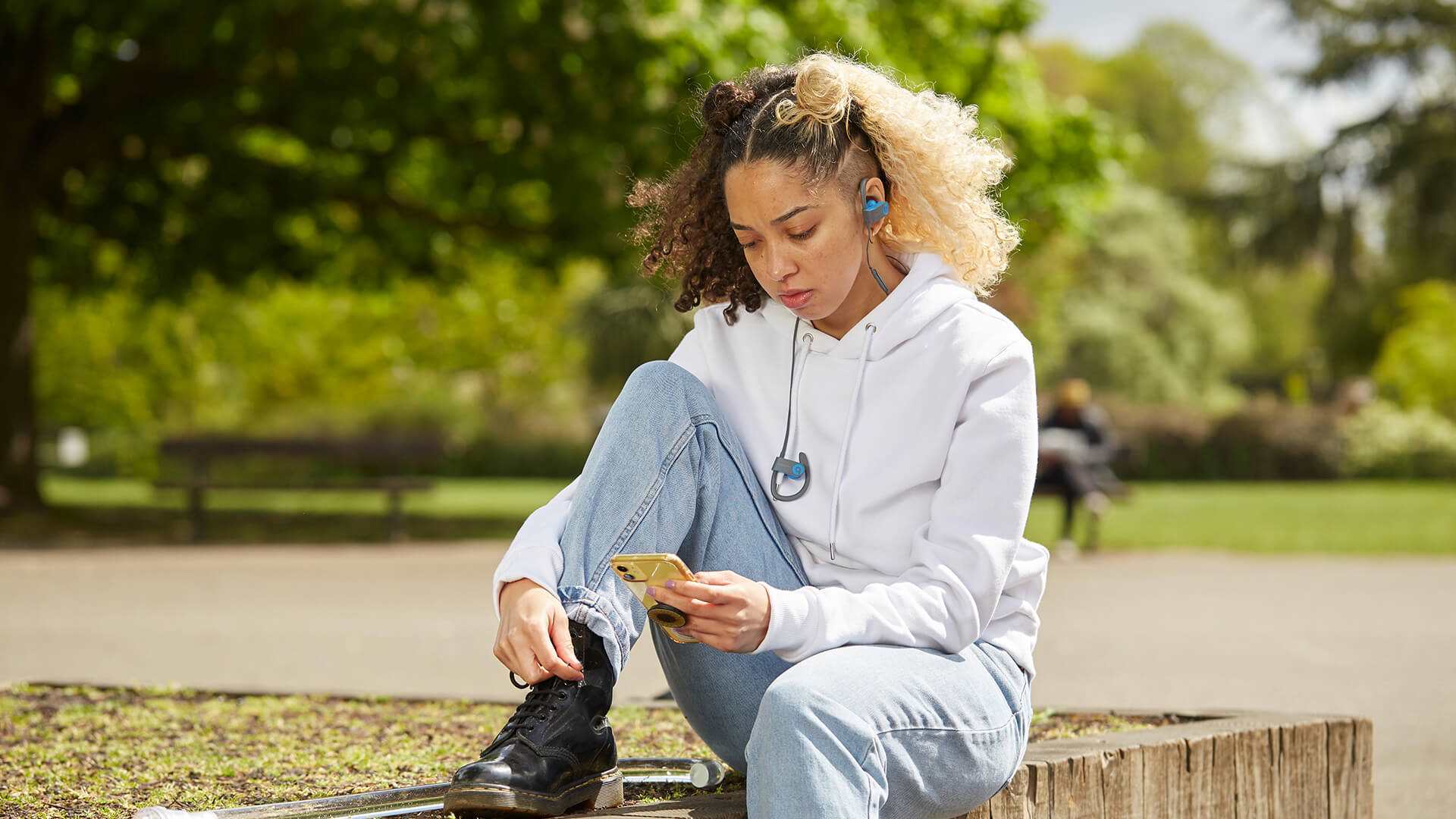
Self-care means looking after yourself. It can be doing a hobby like writing or drawing, meditating or switching off to watch your favourite TV show. There is nothing wrong with prioritising yourself, your wellbeing is just as important.
You can also create a self-soothe box which contains things that can make you feel relaxed.
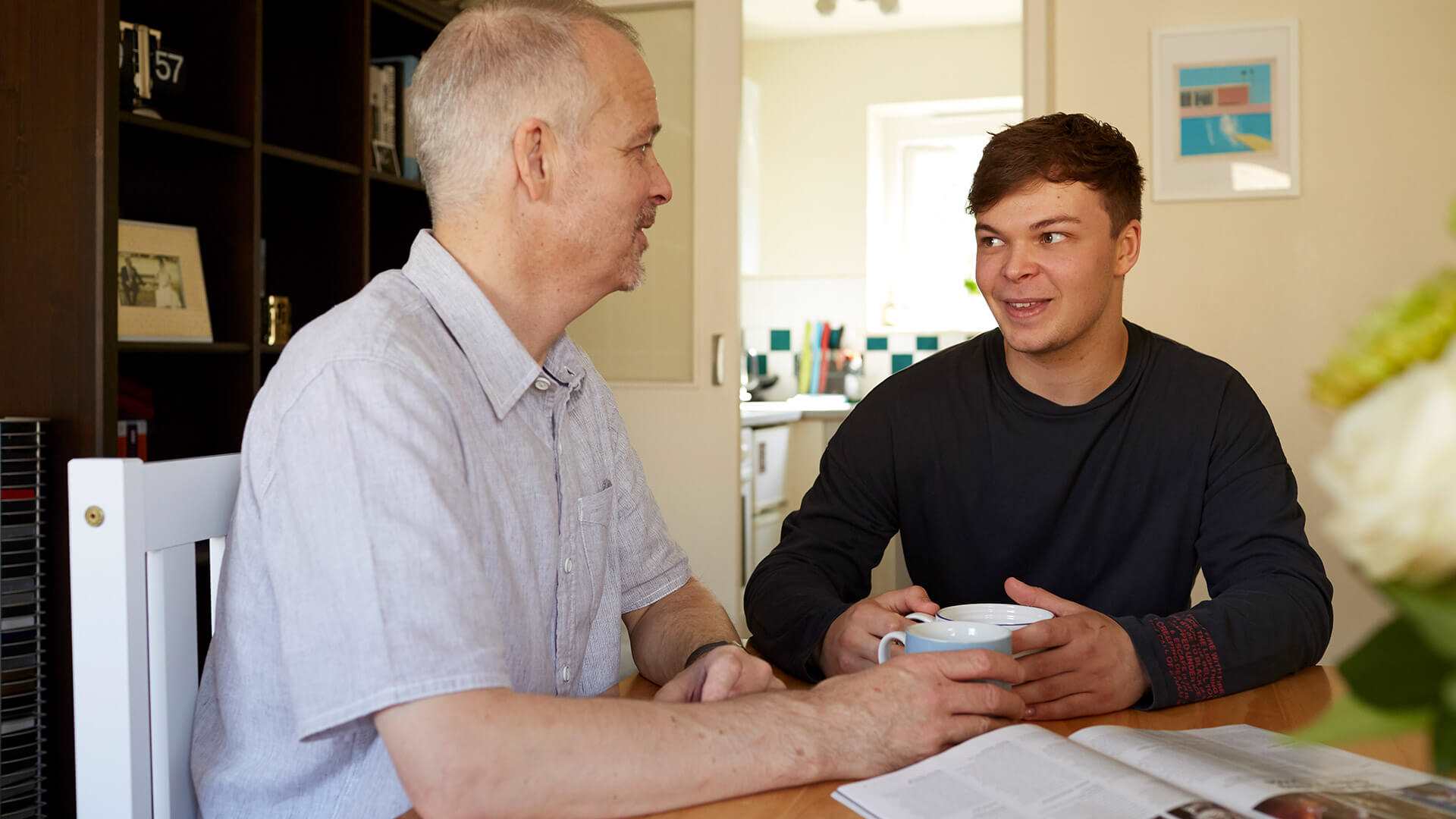
If you feel like you are struggling, reach out for help. Speak to someone you trust like a friend, parent, teacher or helpline. Chatting to someone whether that’s sending a text, having a phone call or meeting up with someone, can help you talk your feelings over. Have a look at our find help page for advice and suggestions on where to get help. You have done what you can to support your friend. Remember it isn’t all on you.

Everyone has their own problems at times and if you are finding things tough, it might be better that someone else supports your friend. Try and be honest with your friend about how you are feeling. You can say something like ‘thank you for sharing this with me and letting me know how you are feeling. I am finding things difficult right now but here are some good places that can help you’.
You might feel guilty, or find it hard to say no because you want to help them. But saying no will not make you a ‘bad friend’. By letting them know you are not in the right place to help them, you are looking after your own mental health and also making sure you friend can have the best support available for them. Remember, your mental health is just as important.

‘Setting boundaries’ is a way you can look after your mental health when you are supporting a friend. It’s about working out what you are able to do and what things you find more difficult, so you can put a ‘boundary’ in place to stop you doing those difficult things. For example, you might find that talking to a friend late at night is something you find difficult, because you are tired and it stops you from sleeping well. Therefore, you may decide that one of your boundaries is that you don’t talk late at night. You can communicate this with a friend by saying,’ ‘I’m taking time for myself right now’ or ‘I am not in the best place right now, is it okay if we chat another time?’
It may feel hard to put yourself first, especially when you want to be there for a friend. But by putting boundaries in places it can help you to look after your wellbeing, and be in a better place to look after your friend too.
Taking time out to rest can help you unwind and give you time to process your thoughts. It can also stop you from taking on too much so that you don’t feel overwhelmed when trying to help your friends. Whether it is going for a walk or doing some deep breathing, taking time out can help you reflect on how you are feeling and look after your mental health.
Helplines and services available
Get help now
If you need help supporting a friend, or you're struggling to cope yourself, it's not all on you. Here are some organisations who can help you.
-
Childline
If you’re under 19 you can confidentially call, chat online or email about any problem big or small.
Sign up for a free Childline locker (real name or email address not needed) to use their free 1-2-1 counsellor chat and email support service.
Can provide a BSL interpreter if you are deaf or hearing-impaired.
Hosts online message boards where you can share your experiences, have fun and get support from other young people in similar situations.
- Opening times:
- 24/7
-
The Mix
Offers support to anyone under 25 about anything that’s troubling them.
Email support available via their online contact form.
Free 1-2-1 webchat service available.
Free short-term counselling service available.
- Opening times:
- 3pm - 12am, seven days a week
-
Papyrus
Offers confidential advice and support for young people struggling with suicidal thoughts.
Its helpline service - HOPELINEUK - is available to anybody under the age of 35 experiencing suicidal thoughts, or anybody concerned that a young person could be thinking of suicide.
- Opening times:
- 9am – midnight, 365 days a year
-
Samaritans
Whatever you're going through, you can contact the Samaritans for support.
- Opening times:
- 24/7



